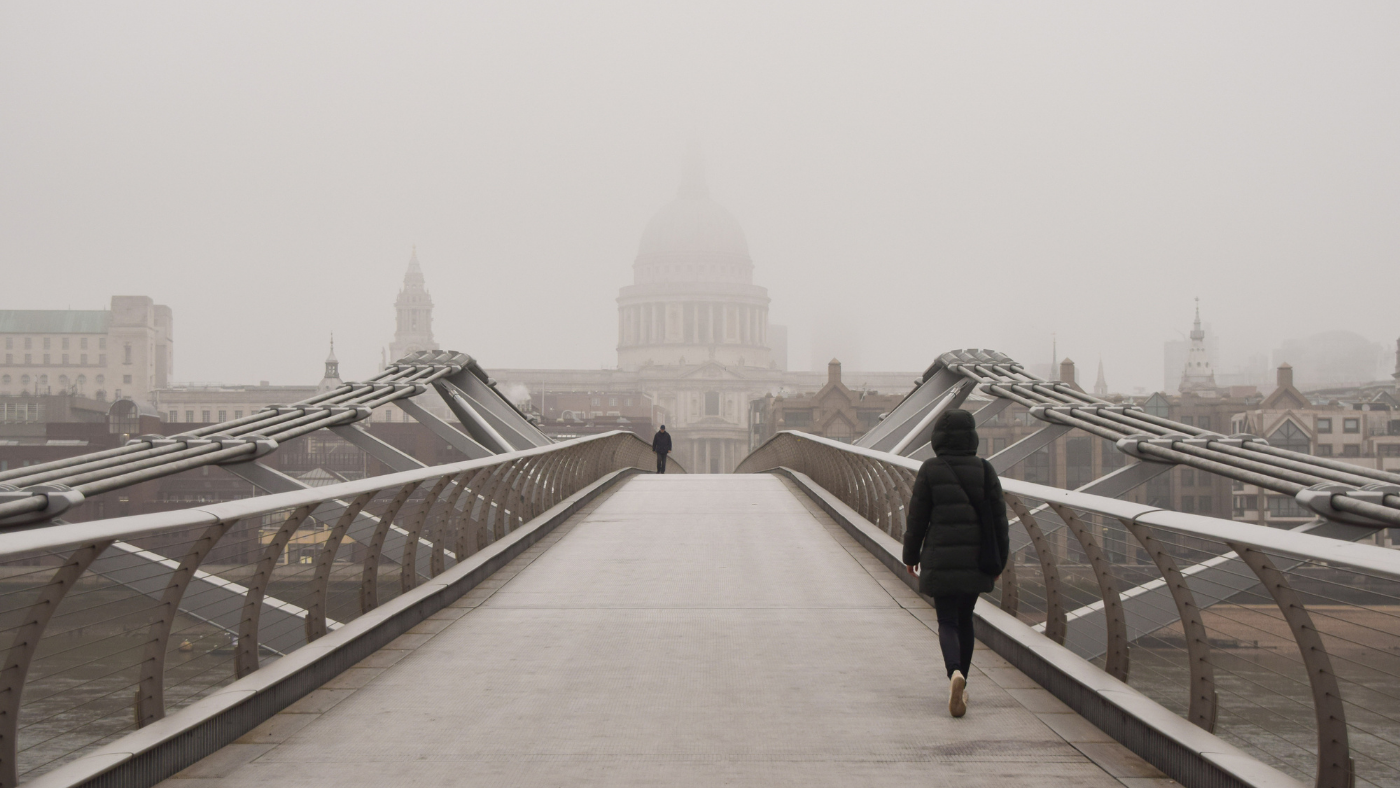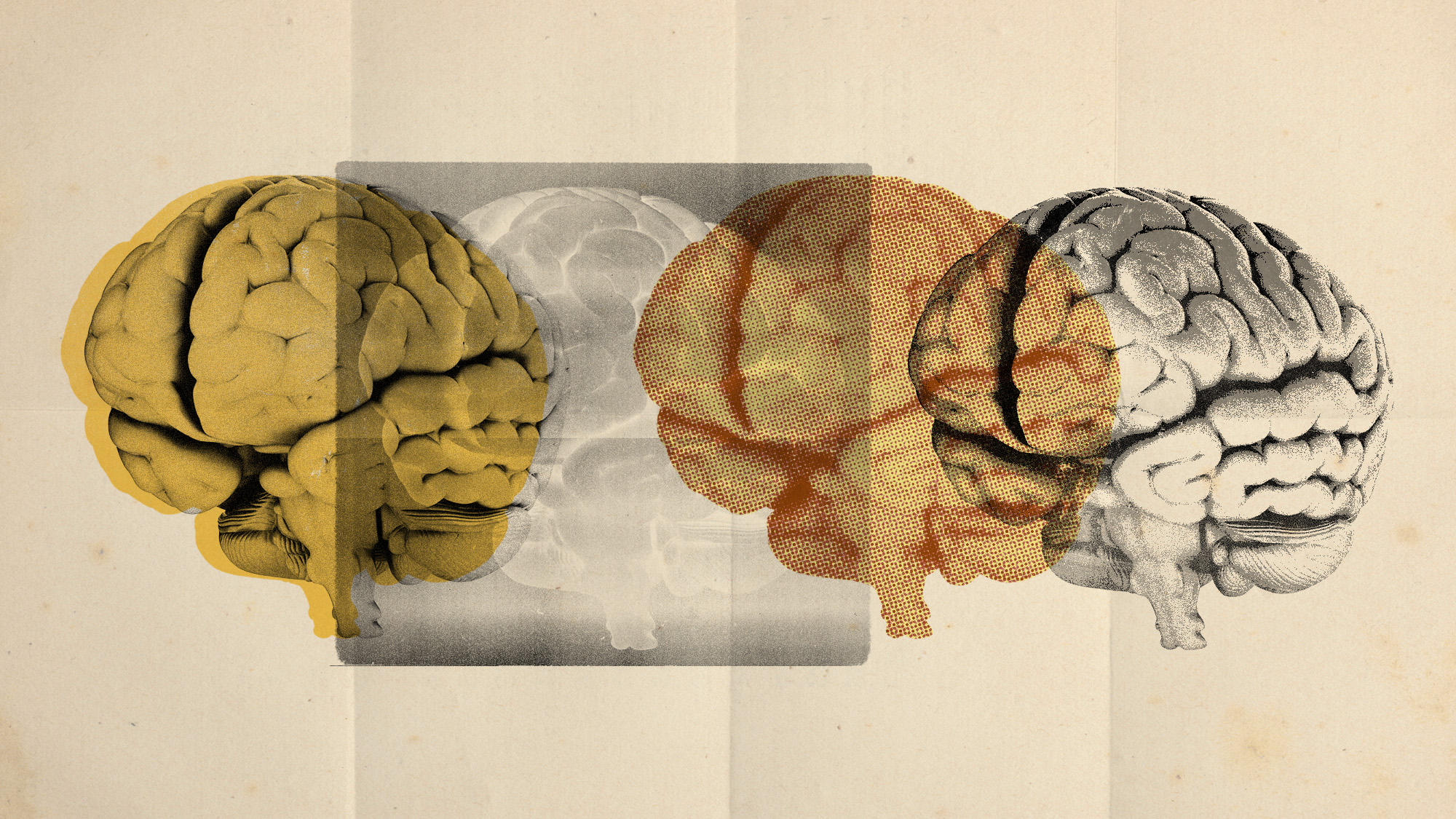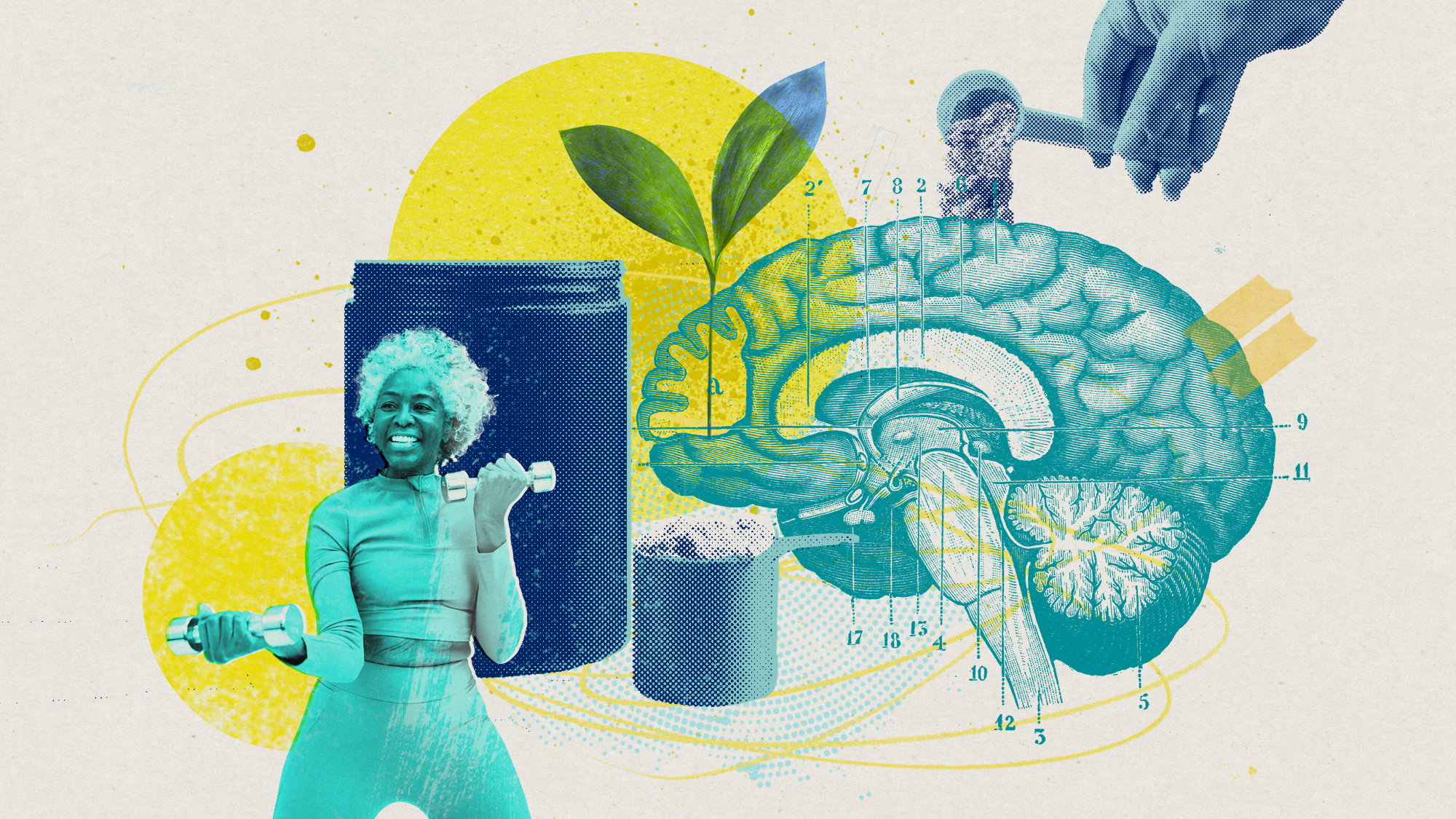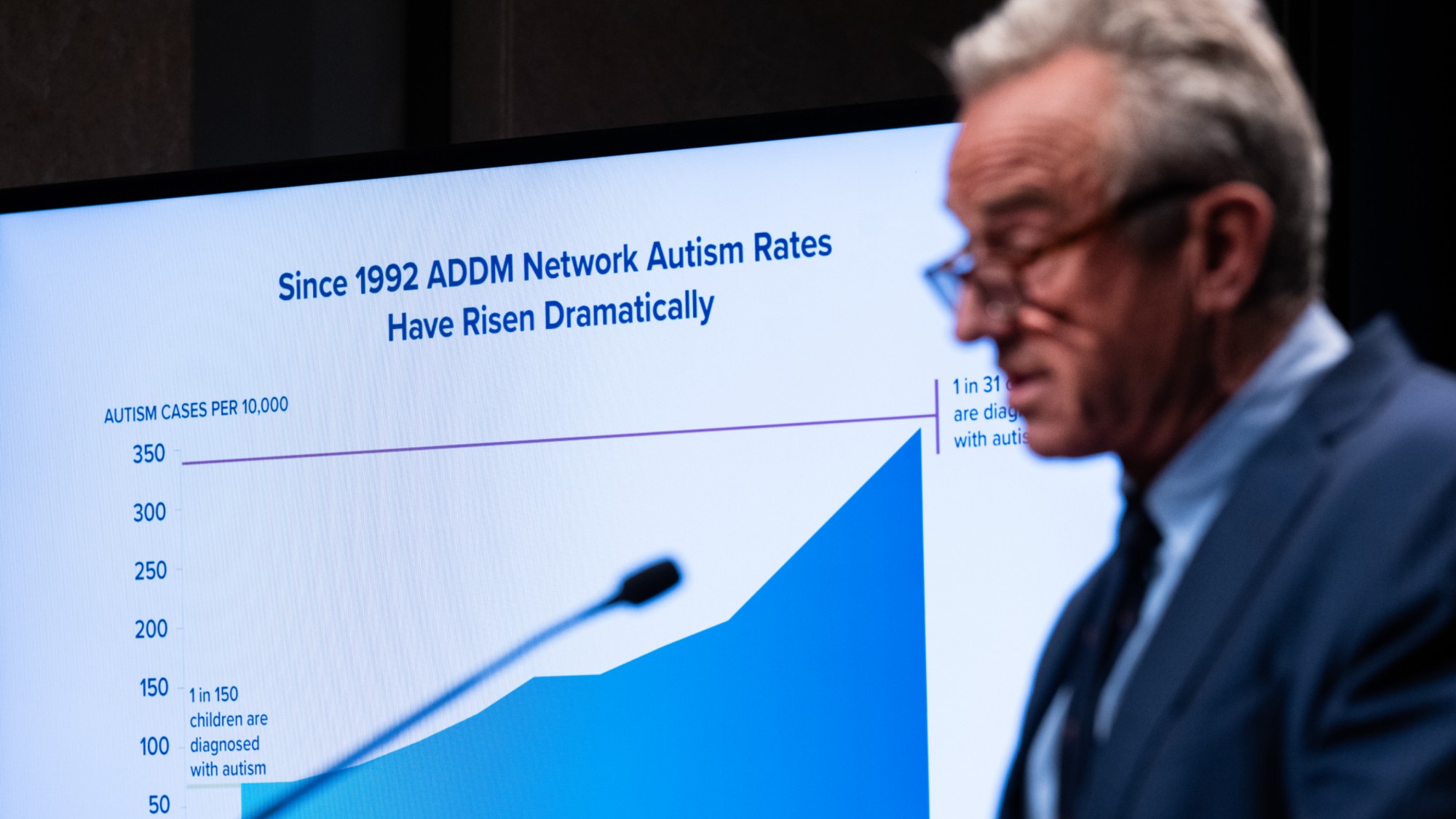What is seasonal affective disorder (SAD)?
Light exposure is said to help improve low mood during darker months

A free daily email with the biggest news stories of the day – and the best features from TheWeek.com
You are now subscribed
Your newsletter sign-up was successful
Many people bemoan the shorter days, fewer hours of sunlight and colder temperatures of the winter months, and some turn to technological aids to lift their moods.
Mick Jagger has been spotted this weekend wearing light therapy glasses, a device “said to enhance the wearer’s mood by using artificial light to boost energy levels during the winter”, The Times said.
The glasses can be used to treat seasonal affective disorder (SAD), a condition that affects three in every 100 people in the UK, according to the Royal College of Psychiatrists. “As the acronym so aptly illustrates, those afflicted experience feelings of sadness and loss of energy, especially during December, January and February,” explained psychiatric specialist Sherri Melrose of Athabasca University in a 2015 research paper in the Depression Research and Treatment journal.
The Week
Escape your echo chamber. Get the facts behind the news, plus analysis from multiple perspectives.

Sign up for The Week's Free Newsletters
From our morning news briefing to a weekly Good News Newsletter, get the best of The Week delivered directly to your inbox.
From our morning news briefing to a weekly Good News Newsletter, get the best of The Week delivered directly to your inbox.
It’s not known if the Rolling Stones singer, who was in Miami at the time, suffers with the disorder, but the light transmitted by the type of glasses he was wearing is said to make people feel “more energetic and happy” due to its effect on the brain. Here’s what we know about SAD, and the help that is currently available.
Cause
SAD is a seasonal condition that is also referred to as “winter depression”. The causes are not certain but are “likely to be complex and multifaceted”, said Harriet Bowyer, lecturer in applied psychology at Glasgow Caledonian University, writing for The Conversation. Particular physiological indicators have been linked to the disorder.
People suffering from SAD have difficulty regulating the neurotransmitter serotonin, which is “believed to be responsible for balancing mood”, Melrose explained in her 2015 paper. Diminishing levels of sunlight correspond with a decrease in serotonin activity, which has been found to cause depression. The lack of direct exposure to sunlight in winter is also linked to decreasing levels of serotonin, due to less vitamin D – which is known to stimulate serotonin activity – being produced in the body.
A free daily email with the biggest news stories of the day – and the best features from TheWeek.com
“People with SAD may also have difficulty with the overproduction of melatonin,” a hormone that responds to darkness and causes “sleepiness”, she continued. An increase in melatonin levels can cause lethargy, though this alone does not cause SAD.
“The combination of decreased serotonin and increased melatonin impacts circadian rhythms,” explained Melrose. The body’s internal clock can be disrupted by the seasonal changes to daylight, and lead to symptoms of SAD.
It’s also possible “that some people are more vulnerable to SAD as a result of their genes”, the NHS website said, “as some cases appear to run in families” too.
Symptoms
Most people experience SAD symptoms during winter, though some appear to be affected by the condition in the summer months. In those rarer cases, the symptoms tend to ease in the colder seasons.
According to the NHS, patients are likely to suffer symptoms including:
- A persistent low mood
- Losing pleasure or interest in everyday activities
- Irritability
- Feelings of despair, guilt or worthlessness
- Feeling lethargic and sleepy in the day
- Sleeping for longer periods of time than usual and finding getting up difficult in the morning
- Craving carbohydrates and gaining weight
People experiencing SAD in the summer are likely to have trouble sleeping, weight loss and agitation or anxiety, the Mayo Clinic said.
The sufferers
“Pinpointing prevalence is difficult”, but people who live furthest from the equator, such as Nordic communities, are “most susceptible” to SAD, said Melrose. Symptoms typically begin to present between the ages of 18 and 30.
It’s thought that women are up to four times more likely then men to suffer from SAD. However, a lack of research means there is uncertainty as to “whether these gender differences really exist and if so, why”, said Bowyer.
The treatment
“Don’t brush off that yearly feeling as simply a case of the ‘winter blues’ or a seasonal funk,” said Mayo Clinic. There are ways to help alleviate SAD symptoms, and the NHS recommends speaking to your GP if you are struggling to cope.
Light therapy is a popular option. Light boxes, lamps and glasses like those donned by Jagger help to stimulate exposure to sunlight during the winter months. Sad.co.uk recommends building the therapy into a morning routine and using the treatment within 30 minutes of waking up. However, this is still an emerging therapy and “research regarding its effectiveness as a standalone treatment for SAD remains inconsistent”, said Bowyer.
Lifestyle changes can also help. Experiencing natural daylight by taking daily walks is one recommended treatment, and can be “an easy and effective” remedy, she continued. As with other forms of depression, factoring in diet, exercise and stress management factors are also recommended.
Talking therapies such as cognitive behavioural therapy (CBT) or counselling can also help patients with SAD. CBT “aims to improve mood by encouraging people to structure their day and engage in meaningful, pleasurable activities”, said Bowyer. Antidepressants, in particular selective serotonin reuptake inhibitors (SSRIs), may also be prescribed.
Julia O'Driscoll is the engagement editor. She covers UK and world news, as well as writing lifestyle and travel features. She regularly appears on “The Week Unwrapped” podcast, and hosted The Week's short-form documentary podcast, “The Overview”. Julia was previously the content and social media editor at sustainability consultancy Eco-Age, where she interviewed prominent voices in sustainable fashion and climate movements. She has a master's in liberal arts from Bristol University, and spent a year studying at Charles University in Prague.
-
 Local elections 2026: where are they and who is expected to win?
Local elections 2026: where are they and who is expected to win?The Explainer Labour is braced for heavy losses and U-turn on postponing some council elections hasn’t helped the party’s prospects
-
 6 of the world’s most accessible destinations
6 of the world’s most accessible destinationsThe Week Recommends Experience all of Berlin, Singapore and Sydney
-
 How the FCC’s ‘equal time’ rule works
How the FCC’s ‘equal time’ rule worksIn the Spotlight The law is at the heart of the Colbert-CBS conflict
-
 ‘Longevity fixation syndrome’: the allure of eternal youth
‘Longevity fixation syndrome’: the allure of eternal youthIn The Spotlight Obsession with beating biological clock identified as damaging new addiction
-
 RFK Jr. sets his sights on linking antidepressants to mass violence
RFK Jr. sets his sights on linking antidepressants to mass violenceThe Explainer The health secretary’s crusade to Make America Healthy Again has vital mental health medications on the agenda
-
 The app tackling porn addiction
The app tackling porn addictionUnder the Radar Blending behavioural science with cutting-edge technology, Quittr is part of a growing abstinence movement among men focused on self-improvement
-
 Scientists have identified 4 distinct autism subtypes
Scientists have identified 4 distinct autism subtypesUnder the radar They could lead to more accurate diagnosis and care
-
 'Poo pills' and the war on superbugs
'Poo pills' and the war on superbugsThe Explainer Antimicrobial resistance is causing millions of deaths. Could a faeces-filled pill change all that?
-
 'Wonder drug': the potential health benefits of creatine
'Wonder drug': the potential health benefits of creatineThe Explainer Popular fitness supplement shows promise in easing symptoms of everything from depression to menopause and could even help prevent Alzheimer's
-
 Fly like a breeze with these 5 tips to help cope with air travel anxiety
Fly like a breeze with these 5 tips to help cope with air travel anxietyThe Week Recommends You can soothe your nervousness about flying before boarding the plane
-
 RFK Jr.'s focus on autism draws the ire of researchers
RFK Jr.'s focus on autism draws the ire of researchersIn the Spotlight Many of Kennedy's assertions have been condemned by experts and advocates